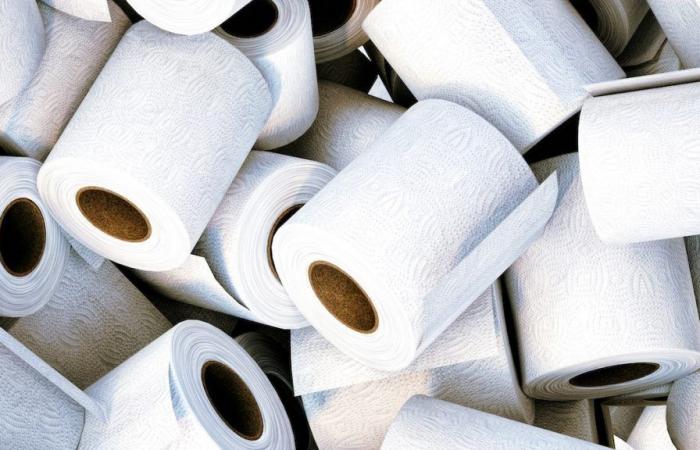Reading time: 3 minutes – Spotted on Wired
Did you know? Buzz Aldrin was the first human being to pee on the Moon – but he didn’t really pee “on” the Moon, since it was his diaper that soaked it all up. The fact remains that if humanity were to take up a little more residence on the Earth’s satellite, it would become necessary to know how to manage the question of natural needs without having to go through the Pampers box.
When it comes to space exploration, no subject is anecdotal. This is why the American magazine Wired devotes a long article to the thorny issue of dealing with human excrement on lunar soil. We learn, for example, that the crews of the Apollo program missions left no less than 96 bags of waste on the Moon, the contents of which are partly made up of urine and fecal matter – and this is really not insignificant.
We certainly don’t know how to leave any place in the same state of cleanliness in which we found it. Something will have to be done, as Melissa de Zwart, a professor at the University of Adelaide and an expert in space law, points out: “If there are going to be humans living permanently on the Moon, you don’t want poop bags lying around.”
But our tendency to scatter our excrement everywhere (in the mountains as well as on the Moon) also poses problems in other ways. The potential development of a whole microbial life interests specialists as much as it worries them. Some wonder whether it would not have been wise to take advantage of this to study the evolution of the populations of microbes coming from the urine and feces of astronauts.
Ghost Protocol
It is with this in mind that Mark Lupisella, responsible for explorations and investigations at NASA’s Goddard Space Flight Center, proposes to launch a robotic mission which aims to recover and analyze samples of biological waste left by those who have visited the Moon since July 21, 1969. Among other experiments, he wants to carry out biomolecular sequencing, which would allow us to know more about the possible genetic mutations undergone by the microbes present in excrement.
“We already know that life outside of humans is robust and can survive in strange environments. But if the human microbiome can survive in an environment like the Moon, it would be an even stronger indicator of the tenacity of life. It would make it a little easier to believe that life exists in many places in the galaxy, the solar system, and the universe as a whole.”, summarizes Mark Lupisella. All this thanks to a few centimeters of pee and centimeters of poop.
In any case, Melissa de Zwart insists that the lack of protocols regarding the management of excrement on the Moon is a problem. “It’s a dangershe warns. “It’s unsightly. It’s not what we want to do. So the question is: what environmental standards will we apply? We don’t have any strict rules at the moment.”
Even inside spacecraft, dealing with these organic wastes is not easy. The weightlessness in which astronauts live is a major problem, since it prevents them from doing their business in the usual way—unless you want unsavory particles floating around in the air. After a difficult start (the diarrhea and vomiting of astronaut Frank Borman, commander of the Apollo 8 mission in December 1968, left its mark in every sense of the word), space agencies have really taken the problem seriously. And better late than never.
Today, the International Space Station (ISS) has adapted toilets, equipped with a suction system that removes urine and feces. On the other hand, there is not yet a circular system capable of eliminating all of the biological waste produced by humans (which includes vomit and menstrual blood).
“I am very excited about working on space-related problems because we have the opportunity to do betterindicated by Melissa de Zwart. We need to take a sustainable and responsible approach. We need to think about how we can minimise our waste. Of course, if we can do that on the Moon and in space, the benefits will be there on Earth because we can pass on what we know about managing and disposing of that waste.” Let us remember that in 2024, there are still billions of people on Earth who do not have access to decent toilets.






